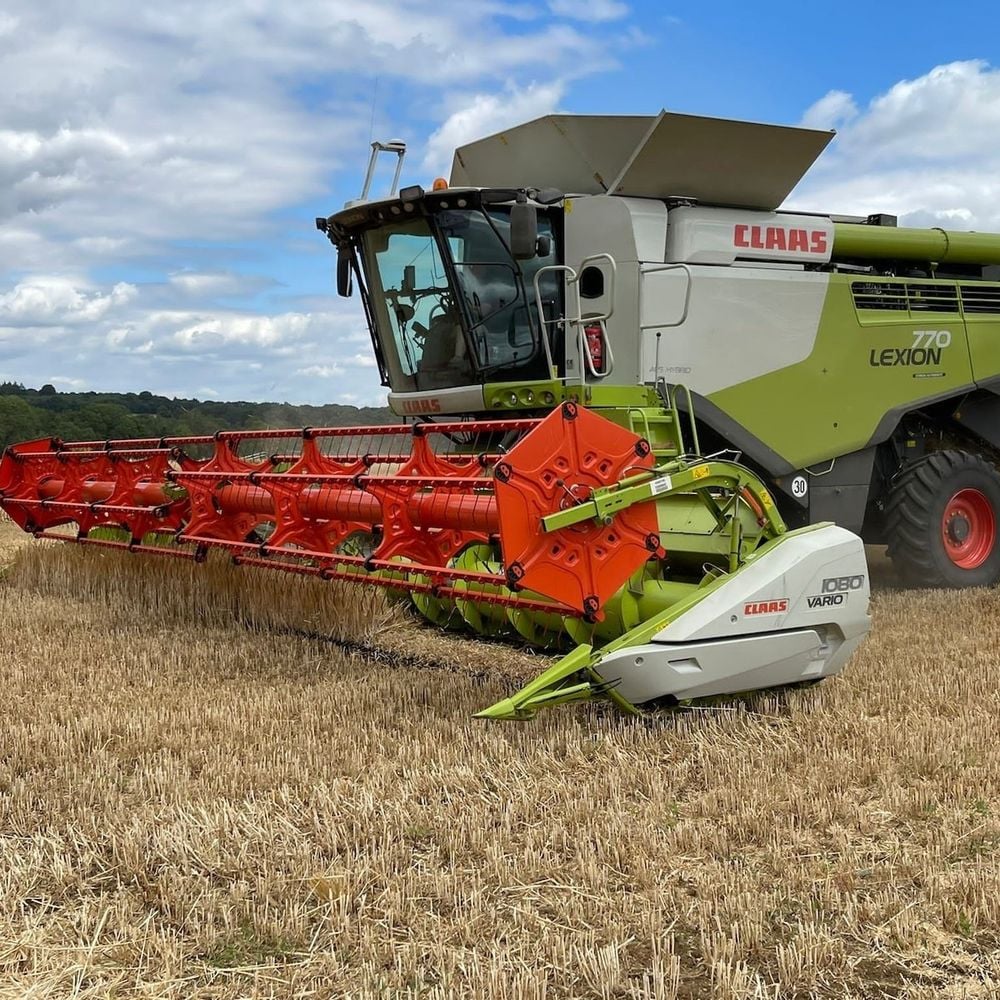
The UK Grain Harvest 2022

The Winter Wheat harvest has begun up to a month earlier for some growers and despite the warm, dry temperatures in those areas, yields and specific weight are doing well.
Indeed some farms expect to have completely finished harvest by the middle of August.
The country experienced two weeks of warm, dry, sunny weather with temperatures consistently above 25C and then a heatwave which peaked at 40.5C. Where fields would usually gradually ripen, this weather suddenly burnt crops off and meant the UK harvest has begun a good two weeks earlier than usual. Although this isn’t normal, harvesting in July is not unheard of, as 2018 was a similar year.
This is in marked contrast to last year in 2021, where many farms had 50% of crops still to be harvest at the beginning of September, as the result of two wet weeks in August where they could not get on the ground and cut anything.
This year, starting on the second wheats, yields have been coming in at 8t/ha, followed by the first wheats at 9t/ha. Despite the lack of rain, many farmers are finding that the wheat is a lovely colour, is thrashing well with moisture rates around 13/14%, and so should make milling quality.
Winter beans are usually ready to come off at the end of August, and yet many farmers are taking them off already.
However, not all crops are showing as healthy yields as the winter wheat. There is no doubt that the extreme heat, coupled with dry conditions, has stressed some crops. Spring peas have yielded disappointingly, in particular and some are experiencing poor yields on their winter beans. Although yields may be lower, the earlier harvest will enable an earlier August drill date for oil seed rape to get crops established, so they can better resist certain pests.
World Grain Market - Ukraine Affect
The war in Ukraine has had a devastating impact on the ability of areas of the world to obtain grain at all, let alone at affordable prices. The effects of this conflict coupled with climate change have brought the importance of global food security sharply into focus. Indeed, many countries will try to become as self -sufficient as they can, and increasing their reserves of certain basic commodities. Many in the world are facing not only grain shortages, exacerbated by droughts in their own areas, but high and rising grain prices, that is if they can even receive imports at all. In turn, domestic prices are rising with inflationary pressures in grain producing countries.
The sanctions imposed on Russia by the free world, in respect of oil and gas serve to vastly increase the prices of grain and other basic commodities traded on the global markets. This is simply because energy prices are volatile and only increasing, due to scarcity and problems of supply. A secure corridor from Odessa across the Black Sea enabling grain from Ukraine to reach the world markets would provide significant relief to many. Sadly, the corridor is not being established fast enough and there are grave doubts as to maintenance of the security of the route. Realistically, only a cessation of hostilities will alleviate these issues, and there is no obvious indication that the war is coming to an end. The outlook for grain and energy markets, if you are a consumer of either or both, is bleak.

The Process Of Buying & Selling Your Home - A Solicitor's View
After making or accepting an offer, staying focused is crucial, as only two-thirds of sales reach completion. Familiar terms like "exchange," "completion," "protocol forms," and "enquiries" can be confusing, especially if it's been a while or if it's your first time. Here’s a concise breakdown to guide you through the process confidently.
The Process Of Buying & Selling Your Home
The Barnsley Village Festival
This year, we are delighted to sponsor the Barnsley Festival, which was established by one of Britain’s greatest gardeners, the late Rosemary Verey. The festival is cherished by thousands.
Local Happening's
Spring - Market Comment
The spring market has taken off as the sunshine arrives. There seems to be a positive sentiment in the market, despite the turbulent world economy.
Spring - Market Comment
‘Twelfth Night’ in Charlbury: Wednesday 11th June
The acclaimed theatre company, The Lord’s Chamberlain’s Men, is coming to Charlbury for an unforgettable night, presenting Shakespeare’s enchanting comedy, ‘Twelfth Night.
Local Happening's




